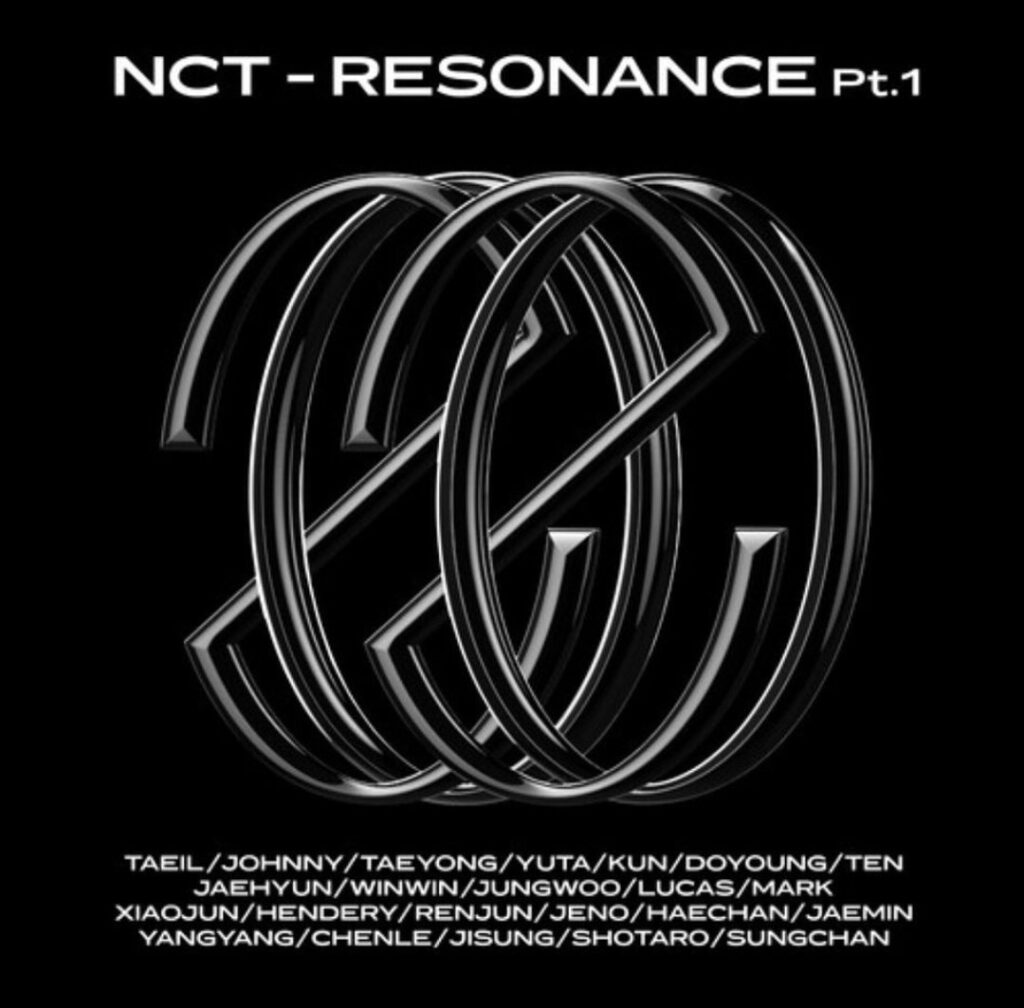
For Neo Culture Technology a.k.a. NCT, as well as their fans, NCTzens, 2020 has been a much better year than it has for most of us. After an extremely busy and successful year for all three subunits, NCT 127, NCT Dream, and WayV, the now 23-membered boy group from SM Entertainment, has come together to release a two-part series of albums under the moniker NCT 2020, two years after they first united for NCT 2018’s group release, Empathy. Resonance Pt. 1 is a 12-track album featuring all 21 known members, as well as two new faces, Sungchan and Shotaro. It leads with two title tracks, “Make A Wish (Birthday Song)” and “From Home”, and precedes a follow-up album, Resonance Pt. 2, which is due to be released in November.
For context, in spring, the group were facing what had become an undeniably bleak situation. Like many, they were forced to cancel concerts and in-person schedules, and — punishingly for a globally oriented group — their primary international markets (China for WayV and the U.S. for NCT 127) were suddenly cut off. With admirable business acumen, however, SM reframed this setback as a rare window of opportunity. Normally, the groups would have allocated a good portion of the year to activities catering to and monetising existing fans only, through concerts, touring, and fanmeetings. Now that these were unfeasible (or reduced to basic online equivalents), SM took the chance to instead spend 2020 focusing solely on building up NCT’s core brand and fanbase, in the hopes that it would pay off in the long term, as the pandemic eases.
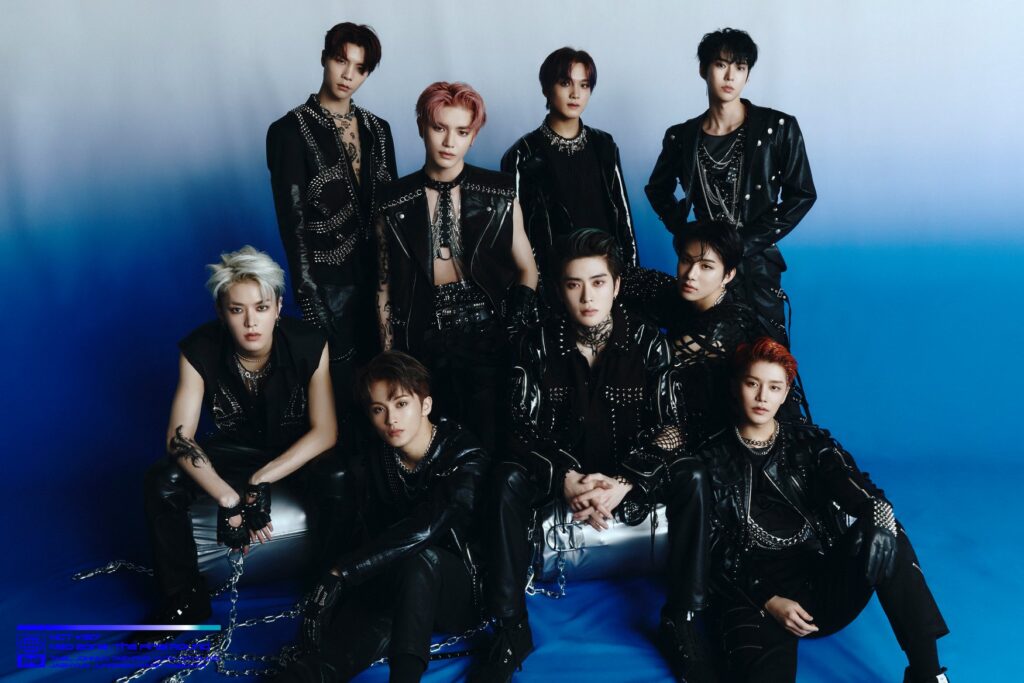
To this end, SM invested heavily into all three subunits over the next few months, blasting existing and potential fans with a deluge of impactful comebacks and accompanying content, backed up with the best production quality they had to offer. This capitalised on the sudden glut of free time everyone in lockdown now had, and appeased Korean fans who were previously upset with NCT 127’s lack of domestic promotions. As a result, the back-to-back releases of NCT 127’s “Kick It”, NCT Dream’s “Ridin’”, NCT 127’s “Punch” and WayV’s Korea-based promotions for “Turn Back Time” and “Bad Alive” ended up driving one of the steepest upward trajectories for the groups in years.
To give a quick summary of their achievements, NCT 127’s Neo Zone almost tripled the sales of their previous full album, 2018’s Regular-Irregular, and along with its May repackage, Neo Zone: The Final Round, earned them NCT’s first “million seller” title. Sandwiched between these two releases in April was NCT Dream’s EP, Reload, which followed a celebrated announcement that they would no longer have a graduation system and ended up doubling the sales of 2019’s We Boom, while also earning them NCT’s first Melon real-time chart number one. In summer, WayV released their first full album Awaken The World (one of NCT’s best full-lengths yet), which charted well not only in China and the U.S., but also Japan and Korea — an accomplishment, considering the group was completely segregated from NCT until recently and the album is sung in Chinese.
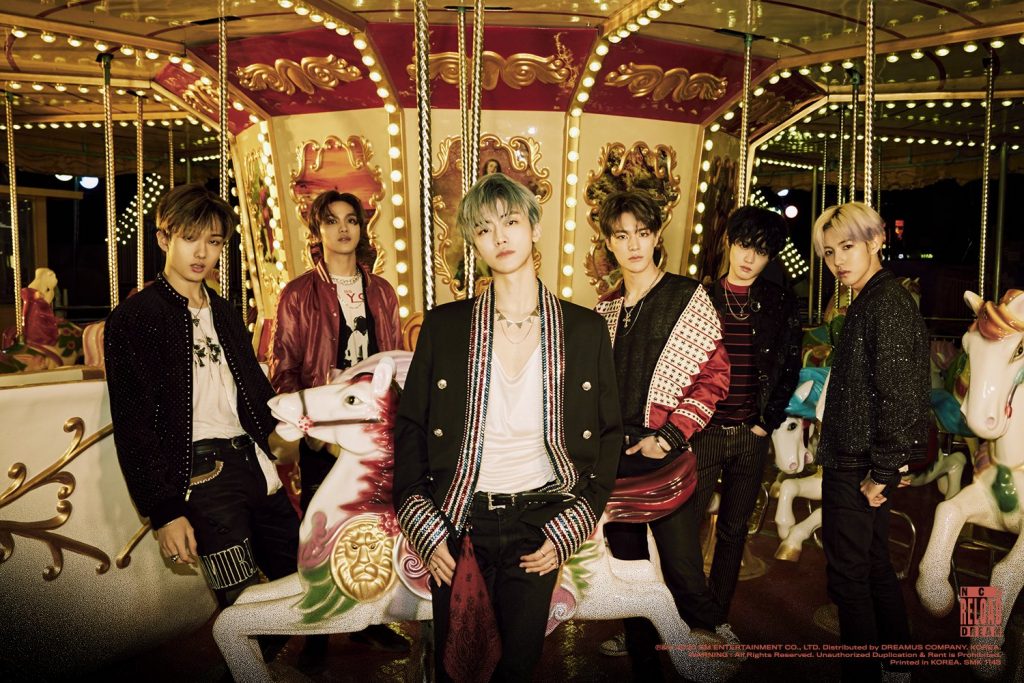
Meanwhile, underneath these high-flying achievements was a spike in social engagement. SM supported these comebacks with a stream of casual video content that kept fans coming back: weekly video views for their main YouTube channel went from averaging around 2 million pre-“Kick It” to around 6 million ever since (recent figures suggest that this might jump a few million again). All of this suggested that SM’s strategy was working and that NCT’s core fanbase was growing day by day.
Showing no signs of stopping, SM rode the momentum from these successes by announcing the NCT 2020 project in September, which would unite all existing 21 members of the three subunits for the first time in two years, while also introducing two new members. The stats surrounding this project so far are even more astounding; Resonance Pt. 1 clocked over 1.1 million sales just in pre-orders, and on release the MV for “Make A Wish” broke the record among all SM artists for the number of views in 24 hours and time taken to reach 50 million views. More eyes than ever are on the group, and expectations and stakes on this project are extremely high; happily for NCT and NCTzens alike, this album meets those expectations, setting a very high bar for Pt. 2 to follow.
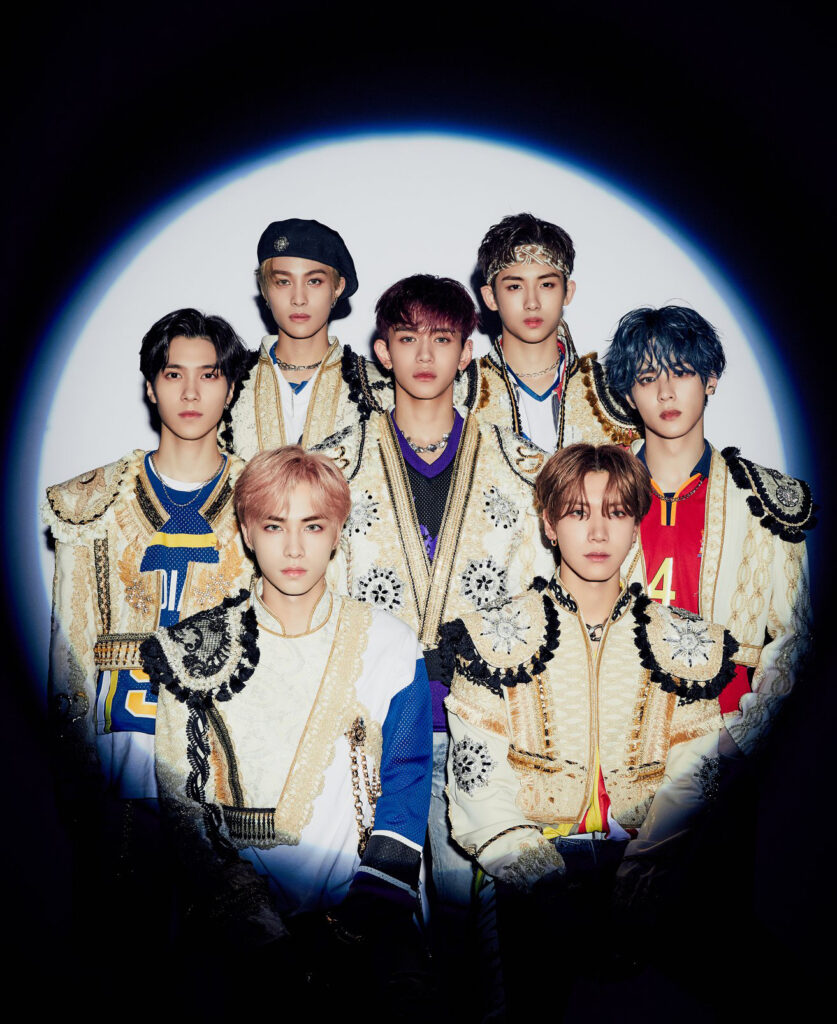
Spanning several genres, from edgy hip-hop to soft pop and RnB, Resonance Pt. 1 is as dynamic and varied as you’d expect from an album combining three different group sounds. It pulls together ten strong tracks, each of which has its own distinctive personality. SM songs can occasionally feel a little robotic, but thankfully most here are written and performed with heart. It successfully highlights each group’s and most members’ unique qualities through tasteful song and part allocation, while threading together very different songs with the “past to present” concept that underlies this project. While Empathy somewhat underused the NCT U system, Resonance Pt. 1 takes full advantage of the ability to combine the incredibly diverse set of talents possessed by these 23 boys; most songs feature seven members and everyone appears on at least two, resulting in numerous interesting synergies.
The album is split into two chapters, separated by a short instrumental named “Interlude: Past to Present”. In it, a dreamy 80’s soundscape erupts into present-day NCT-style hip-hop, emulating time travel through musical eras and spatial travel through sound design. This gives us a clue to the album’s concept; Resonance Pt. 1’s first half represents the past, while its second half represents the present. If there is a fault in this album, though, it’s that this past-present distinction is not clear; retro-inspired songs appear in both chapters, as does the more contemporary style NCT are known for.
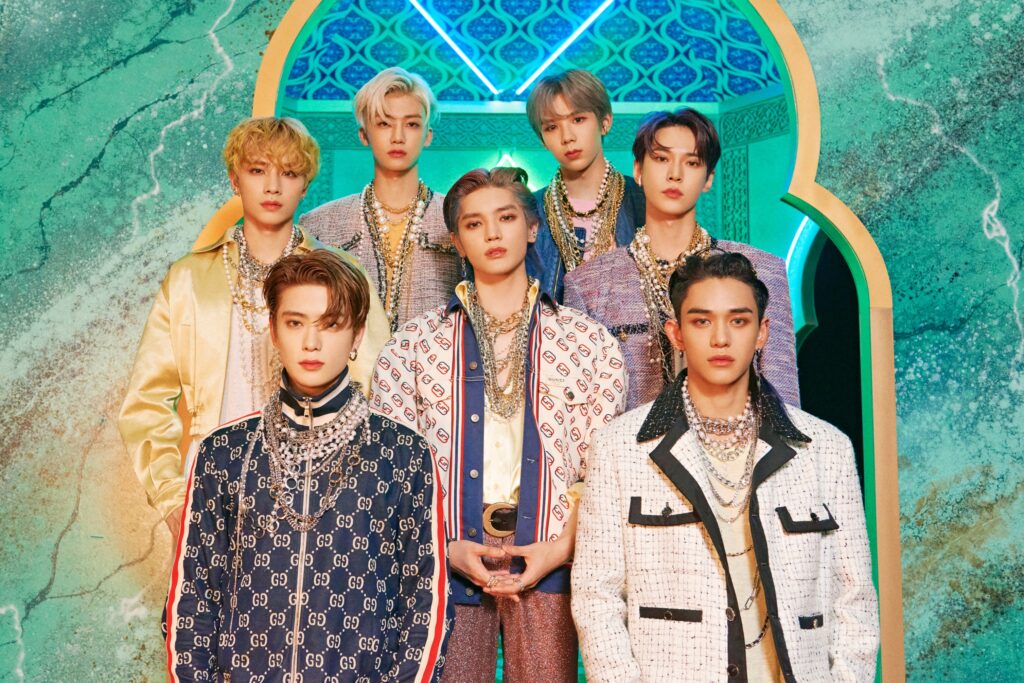
Chapter One opens with “Make A Wish”, a more playful interpretation of NCT 127’s usual edgy hip-hop sound, which uses a catchy whistling hook and sensual melodies over a deceptively upbeat instrumental to get itself into your head. Mixing dark classic hip-hop elements (the breakdown is reminiscent of Seo Taiji and Boys’ grungy 90’s sound) with subtle major chords and vocal flourishes, this is one of the most addictive songs on the project, which advances NCT’s established sound with a greater sense of ease and roguish charm.
“Misfit” and “Volcano” follow as similarly powerful, rap-focused hip-hop tracks, in the style we’ve come to expect from SM’s representative hip-hop group. In the case of “Misfit”, though, they’ve upgraded it with more energy and spunk; with representative rappers from each subunit, “Misfit” gives us the cipher we’ve always wanted over a rowdy, rock-inspired beat. As usual, Mark performs his verses best, but Hendery and Sungchan are pleasantly surprising talents. Meanwhile, “Volcano” is the follow-up to 2018’s hit “Boss”, with exactly the same line-up, and while it’s a welcome throwback that fits into the album well, it treads too much of the same territory to offer as much novelty.
“Light Bulb” and “Dancing In The Rain” continue by referencing past eras in a softer fashion. In the case of “Light Bulb”, the reference is more literal – the subdued hiphop track was originally performed in 2015 when Taeyong, Doyoung and Kun were still rookies. Five years later, their performance (along with new addition Sungchan) exudes a bittersweet nostalgia, especially with Doyoung’s exquisite, breathy vocals. However, it is one of the rougher, less polished tracks on the album, and with a repetitive instrumental and relatively long runtime risks dragging at times.
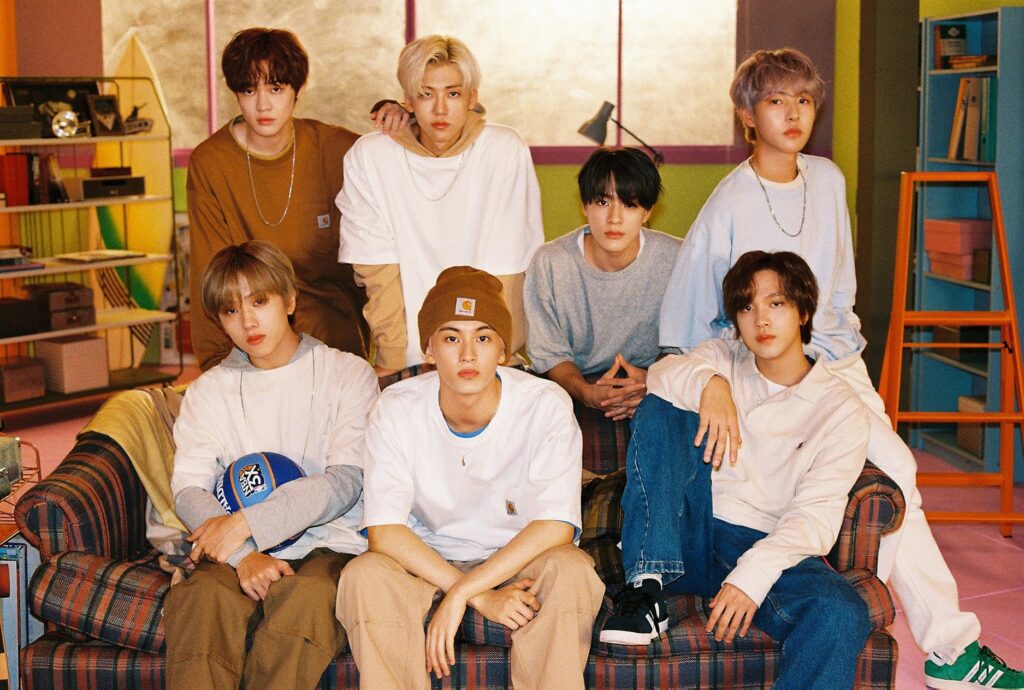
“Dancing In The Rain”, meanwhile, is a charmingly quaint jazz-pop number referencing 20th century jazz with airy guitars and romantic melodies. Jaehyun’s rap sounds more natural here than it does on most 127 efforts, and the song is so pleasantly light-hearted and whimsical that it would fit right into a Red Velvet album. After the interlude, we then enter more experimental territory with the “present” chapter of the album, starting with a song from each subunit. Just like “Go” and “Touch” were refreshing changes for Dream and 127 in 2018, so too does each track here highlight each subunit’s strengths and style, while challenging them to try something new.
NCT Dream’s “Déjà Vu” extends their characteristic fun, playful style with a sense of power and drama and a grander scale that hints at greater things for the group ahead; Haechan’s vocal ad-lib on the reverb-heavy, epic intro sends shivers down the spine in a way no Dream songs have done before. WayV’s “Nectar”, meanwhile, is a step in a darker, more mischievous direction, with a low chorus contrasting with the soaring vocals that appeared on epics like “Moonwalk” and “Turn Back Time”. Xiaojun performs as well here as he does on “Make A Wish”; with a distinctive vocal tone as smooth as butter, the talented vocalist is one of several seizing their opportunity to shine on this album. Finally, NCT 127’s “Music, Dance” is a rhythmic, bass-heavy dance track, borrowing their tradition of spoken rap choruses but expanding their repertoire with a groovy, minimalistic instrumental that is much more intent on getting listeners to dance than songs like “Punch” and “Kick It” were.
“Faded In My Last Song” and “From Home” bring the album back to a more sober atmosphere. The former is a beautiful RnB track with a haunting melody and eerie, slightly off-key pianos; the call-and-response repeating chorus lines are an especially nice element, highlighting each vocalist’s unique tone. On this song and the next, Renjun stands out for his honey-sweet tone, though none of the vocalists fall short.
The latter complements “Make A Wish” as the secondary title track, and as a warm, nostalgic RnB ballad, is the perfect song to promote as autumn sets in. It recalls classic SM ballads such as “Breath”, with dancing vocal melodies that expertly avoid becoming repetitive while remaining sentimental throughout (also highly suitable for belting at karaoke). Among the otherwise heavily electronic, Western-influenced tracks on this album, it’s a breath of fresh air, ending a well-paced album on a heartwarming, pensive note. Lyrically, it’s an endearingly sincere effort to reflect on NCT’s multinational concept and pay homage to its diverse mix of youths who all left their homes to pursue lofty dreams, with a mix of Korean, Chinese, and Japanese lyrics that are sung by corresponding vocalists from the group:
When we shine bright
I’m alive in the CT, sing for me
Looking at each other under this light
I secretly laugh, I forget everything, yeah
‘Cause I’m not alone
You became a warm home for me
Yesterday and now
We’ll be back tomorrow
It all starts from home
Overall, Resonance Pt. 1 is a satisfyingly full realisation of NCT’s potential (and Lee Sooman’s prediction) after four long years, eclipsing Empathy in terms of how well it utilises the NCT U concept and paying unusual amounts of attention to making sure every member is heard and appreciated. While that hasn’t equated to fair line distributions yet (Taeyong and Doyoung are near omnipresent, while members like Ten and Winwin are criminally underused), it seems that SM are pre-empting that problem with the upcoming release of Pt. 2. If that is another full-length album as expected, then hopefully these imbalances will be corrected. Nevertheless, each member has at least one moment to shine, which is impressive considering there are now 23 of them; NCTzens will be able to appreciate every member’s growth, and new listeners will be given a comprehensive overview of the group’s sound, abilities, and most representative voices.
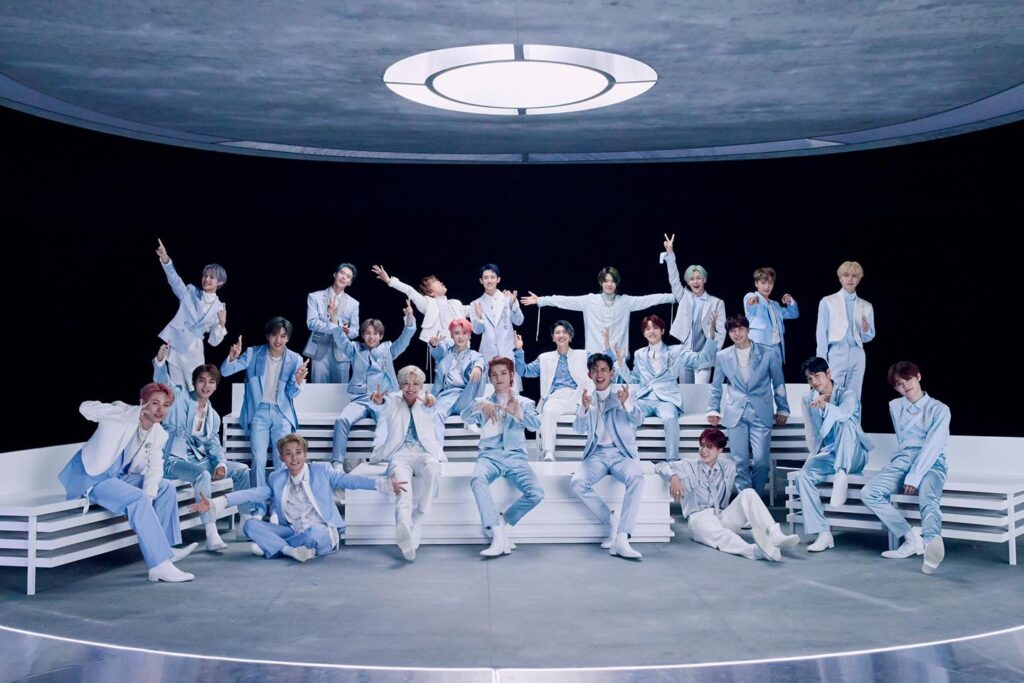
Importantly, even while being a festival to celebrate the current NCT, this project purposefully explores new territory for all three subunits and the overall NCT sound. It exhibits growth and experimentation that develops each subunit’s sound further, and which will leave lasting effects on their artistic identities. Individual members like Xiaojun who were given a chance to shine, and as a result found new strengths for themselves, will come out of the project as more developed, independent artists, returning to their respective groups with more confidence and experience. These will then reunite as subunits that have a greater understanding of themselves: their strengths, their weaknesses, and the colours that make them unique. With this insight in hand, 2020 may become just as pivotal a year for all three as it has been for us.
(YouTube [1]. Lyrics via Genius. Images via SM Entertainment.)


